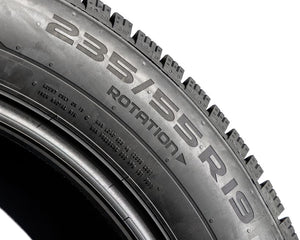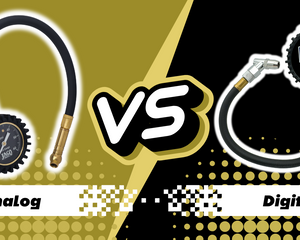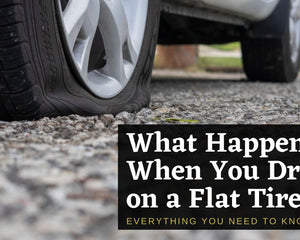
It's no secret that cold weather can wreak havoc on your vehicle. From causing the battery to die to freezing the fuel line, winter can be a real pain when it comes to keeping your car running smoothly. But one of the most common problems that drivers face in the winter is tires that lose pressure. So why does this happen, and more importantly, what can you do to prevent it? In this article, we'll explore both of those questions in detail. We'll also provide some tips on how to keep your tires properly inflated in cold weather.
Why Do My Tires Lose Pressure in Cold Weather?
Tires lose pressure in cold weather for a variety of reasons. The most common reason is that the cold air causes the tire to contract, which reduces the amount of air inside the tire. In addition, moisture in the air can condense on the tire surface and cause tire pressure to drop, thus causing your vehicle's TPMS light to turn on. Finally, when it's cold outside, your car's engine works harder than usual to generate heat, which can also lead to a decrease in tire pressure.
So what can you do to prevent your tires from losing pressure in cold weather? The most important thing is to make sure that your tires are properly inflated. You should check your tire pressure at least once a month using a tire pressure gauge. If you find that your tires are low on air, you can add some more by using a tire pump or by filling up the tire with air from an air compressor.
In addition, it's important to keep your car well-maintained in winter. Make sure your engine is properly tuned and that you have the proper amount of antifreeze in your radiator. Also, be sure to check your tire pressure regularly and add air if necessary. By following these tips, you'll help ensure that your car runs smoothly all winter long.

Checking Tire Pressure in Cold Weather
One of the best ways to keep your tires properly inflated in cold weather is to check the pressure regularly. You can use an accurate tire pressure gauge to do this. It's important to check the pressure when your tires are cold, as the pressure can be different when the tires are warm. In general, tire pressure tends to be lower in cold weather, so it's important to adjust your tire pressure accordingly.
You should also make sure that your tire pressure is appropriate for the weight of your vehicle. Over-inflating or under-inflating your tires can lead to problems such as tire wear and decreased fuel efficiency.
It's also a good idea to check your tire treads in cold weather. Treads can become more worn in winter, so it's important to make sure that they're still in good condition. If you have any questions about tire maintenance or if you need help checking your tire pressure, you can contact a professional mechanic.

What Should My Tire Pressure Be in Cold Weather?
When it comes to tire pressure, there's no one-size-fits-all answer. The tire pressure that's right for your vehicle will depend on a variety of factors, including the weight of your car and the type of tires that you have. In general, though, you should aim to keep your tire pressure between 30 and 35 psi in cold weather. If you're not sure what the correct tire pressure is for your vehicle, you can check the owner's manual or consult a professional mechanic.
It's also important to note that tire pressure can vary depending on the weather. In hot weather, for example, you may need to increase the tire pressure to maintain optimal performance. Conversely, in cold weather you may need to decrease the tire pressure in order to avoid tire damage.
How-To Inflate Tires in Cold Weather
When it comes to the proper tools needed to inflate your vehicle's tires, there are two main tools we recommend for almost every driver.
- 12-volt tire inflators
- Tire inflator gauges (used with air compressor lines)

Tips for Keeping Your Tires Healthy in Cold Weather
In addition to checking your tire pressure regularly, there are a few other things that you can do to keep your tires inflated in cold weather:
- Keep your car in a garage or covered area when possible. This will help protect your tires from the cold weather.
- Make sure that your tires are properly aligned. Misaligned tires can lead to increased tire wear and decreased fuel efficiency.
- Avoid driving on icy roads whenever possible. Icy roads can cause your tires to lose traction and lead to decreased performance and safety.
Final Thoughts
In this post, we've explored the reasons why tires lose pressure in cold weather. We've also provided some tips on how to keep your tires properly inflated in winter conditions. Whether you're driving a car, truck, or motorcycle, following these tips will help you stay safe on the road during the winter months.




